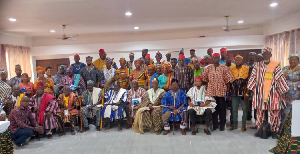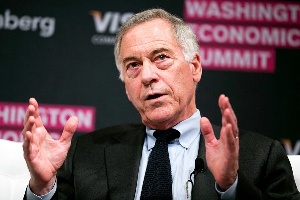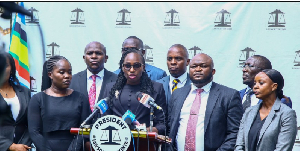Traditional leaders in the Upper East Region have been urged to urgently increase efforts in their traditional areas to help end child marriage and foster a brighter future for children.
Yvonne Wonchua, the Upper East Regional United Nations Population Fund (UNFPA) Focal Person, who made the call, underscored the significant role of the traditional leaders in ending the phenomenon, which was entrenched in sociocultural beliefs and social influence.
“We have been working to end child marriage, and we are seeing some positives, but we need to up our efforts, and our traditional leaders have crucial roles to play,” she said.
Wonchua made the call at a day’s engagement in Bolgatanga, with some traditional leaders comprising divisional and sub-divisional chiefs and queen mothers from the Bawku West, Kassena-Nankana West, Builsa South, Bongo, Nabdam and Talensi Districts.
The forum was organised by the Upper East Regional Coordinating Council and the Department of Gender with funding from the United Nations Population Fund (UNFPA) and the United Nations Children Fund (UNICEF) under the auspices of the UNFPA-UNICEF Joint Global Programme to end child marriage.
The UNFPA-UNICEF Joint Global programme was designed to work with various countries and stakeholders to contribute to achieving the Sustainable Development Goals (SDGs) particularly target 5.3, which aims to eliminate all harmful practices, including child marriage by 2030.
In a presentation on child marriage and its effects, Georgina Aberese-Ako, the Acting Upper East Regional Director of the Department of Children, said child marriage was a global issue and was still prevalent despite decades of interventions to end the challenge.
She underscored the need for continued collaboration among stakeholders to address the menace, adding that traditional leaders of the communities had the influence to intensify education on the importance of ending child marriage to their development.
“Child marriage is not a new thing, it is something we have been fighting, and a lot of efforts from all stakeholders, including chiefs, have been made, but the issue is still prevalent in our communities,” she noted.
Aberese-Ako said although the national rate for child marriage was 19 percent, the Upper East Region was leading the regional chart with 28 percent, describing it as worrying and painting a gloomy concern that required increased efforts to reverse the trend.
Ending child marriage, she said, had a significant bearing on achieving most of the SDGs, including goals one, two, three, four and five, among others, which left barely five years to achieve.
“We must prioritise the education of children especially the girl child to ensure that they develop interest and stay longer in schools which would play a critical role to ending teenage pregnancy and child marriage,” she added.
Dora Kulariba, the Upper East Regional Adolescent Focal Person, Ghana Health Service, said teenage pregnancy was one of the factors fueling child marriage, adding that although recent statistics indicated that teenage pregnancy had reduced in the region, from 5,902 in 2022, 5,321 in 2023 to 4,388 in 2024, it was still worrying.
The traditional leaders lauded the project, noting that including the traditional leaders in the fight against child marriage was the right move, and pledged to engage their subjects to educate them on the dangers of child marriage.
Naab Billehsong Lanwont Namoog, the Divisional Chief of Kotintaabik, said efforts must be made to decentralise education at the community level and provide interventions that would reduce poverty and vulnerabilities of families to child marriage.
Pognab Comfort Awon-nalim Amoak, the Queen mother from the Fumbisi Traditional Area, advocated for the prioritisation of girl-child education as the surest way to preventing teenage pregnancy and child marriage.
Click to view details



Regional News of Saturday, 28 December 2024
Source: GNA

















